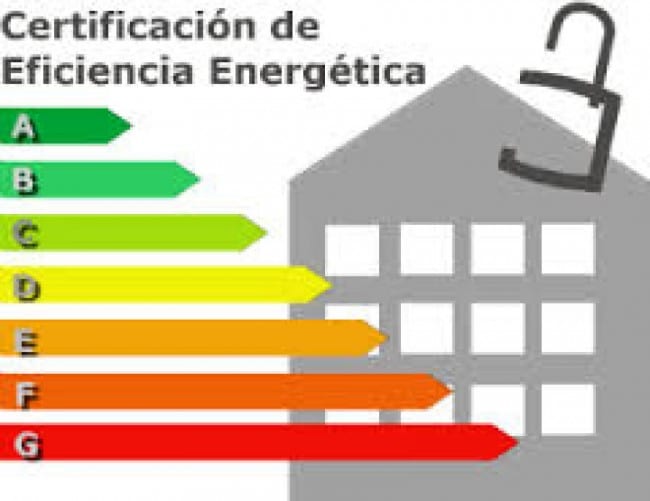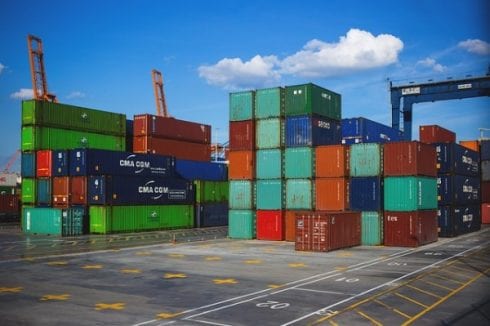 It’s worth studying the Energy Certificate
It’s worth studying the Energy Certificate
It could help you bag the best price for the home of your dreams.
For every property sale to be registered, an Energy Efficiency Certificate (CEE) must be included within all the documents.
The Regulations state that the efficiency rating must be displayed in all selling and letting promotional material and a copy of the full certificate made available to every property enquirer.
Despite that, the convention appears to be not to obtain that certificate until contracts have been signed and everyone is on their way to the notary.
I suppose it will take a few agents and owners being substantially fined for people to comply with the regulations.
Study of the energy certificate should be a part of a buyer’s consideration of a property.
In the south of Spain, the energy consumption in a house will reach two peaks: in winter when heating is required and in summer when air conditioning comes into play.
How efficient the house is in retaining heat in winter and avoiding it in summer, is what the energy certificate is all about.
There are two linked energy certificate associated with a property.
The first, titled ‘Certificado de Eficiencia Energetica de Edificios’ is the one prepared by the Spanish qualified professional, using the mandatory computer programme with all the pretty colours and photographs.
The professional then uses this form to complete the application to the certifying authority (here, that is the Junta de Andalucía).
The application is the green one with the ‘Junta de Andalucía’ heading and when approved it has the all-important etiqueta at the end, date and time stamped and indicating when it expires 10 years later.
When instructing professionals to prepare the certificates it is essential that this, together with payment, refers to obtaining this all-important label.
We see many times that it’s only the computer printout that is obtained and there is panic close to the notary date when it is realised that the Junta-approved etiqueta has not been obtained.
The CEE is important for three reasons.
The first is that it describes the whole house – floor, wall and window areas and orientation; construction materials and their energy transfer efficiency, plus the same for windows and doors; and equipment, energy source and power use for heating and cooling, including hot water.
That information is then applied to an appropriate formula that provides an indicator of the energy and carbon dioxide released by the property, and the total energy consumed by the property, split between heating and cooling.
These indicators are then compared to the best (A) and worst (G) house types.
The second reason is that it describes how the energy efficiency can be improved, sometimes by relatively small changes such as new hot water heater or solar water heating.
And the third and immediate reason is that the IBI (property tax) is reduced by up to 20% for energy efficient houses.
When added together with the cost of energy savings, the return on a small investment can be significant.
So, when you are buying a property, demand a copy of the CEE before you even start negotiating the price.
Responsible valuers and building surveyors will be taking it into account when advising you on your purchase.
Click here to read more Spain News from The Olive Press.




This is another one of the potty ideas coming out of Brussels. The minute percentage that will hunt around for an “A” rated house compared to a house that they like and want to live in means it is a waste of peoples time and money. I am sure it was thought up as a job creation scheme and it should be scrapped as a mandatory item. If a buyer wants to get a certificate for a certain house then he should pay for the additional cost to be added to his survey.
This is most definitely not a potty idea for rational people – the function of a house is to provide an internal environment that is easy and cheap to maintain, comfortable to live in and easy and cheap to keep warm in winter and cool in summer. If a new build house requires a/c in summer it has utterly failed in materials and design.
Sadly most people are too stupid or lazy to use the i/net to ascertain all the info they need to see if (a) the house has been well built (b) of the right materials and (c) the correct type of design for the climate it is situated in. Had they done this both as Spanish or foreigners then the crap building would have stopped decades ago, not only in Spain but across Europe asd a whole – la genta es muy stupido and for that you pay and pay.
A favourable energy profile means that a house will cost significantly less to run, thus will be a useful factor when valuing a property (up or down) It will also be a consideration in global warming John, unless Trump-like, you “don’t believe in it”.
Yes I do believe in it. When laws come out they should benefit all and to me this law does not. My friend is an estate agent and he said that he can count on one hand the number of people asking about the rating. He said that location, garden, garage, size of rooms, central heating etc etc and the thickness of the insulation a distant last if ever.
If 1 million people sell a house and have to pay for the certificate and only 5000 take the slightest interest in it then I feel that it is not needed. Basically it is job creation by the EU in giving us something that the majority do not want.
Put the onus on the buyer, normally he will choose what type of survey to have he can choose to have the energy rating done as well.
If a buyer is stupid enough to disregard the energy rating, he is missing a lever that could gain a significant reduction in price, because, for sure, Spanish ratings will be abysmal. It is also in the agents interest to gloss over this factor in order to flog duff, leaky houses. Don’t forget, they work for the seller, not the buyer.
At least the EU got this one right. What it has shown, in Spain at least, is that most properties are totally deficient when it comes to build-quality. Anyway, why are you worried John? You never purchased in Spain and this rule will not even apply to the UK soon.
The existing Building Regs. Part 11 are way superior to the new French Regs. introduced in 20012. The Germans used to have a very sensible reg. for all north elevation windows – triple glazing. Last I heard they were going to lower the standards to make construction cheaper – so it goes.
John, you’ve just described yourself perfectly – la genta es muy stupido.
Insult how much you want (as usual) Stuart but I honestly believe that better building standards would be far superior compared to a piece of paper which does not help with the properties insulation.
Better building standards would still need a certificate to prove they had been adhered to.
Also, it’s never too late to improve the thermal integrity of an existing house, thus improving it’s value. So all dwellings could benefit by recognising the usefulness of an energy rating.
Careful John, your replying to a master builder who will give you a complete synopsis on modern building Technics. You have now opened the floodgate unless Stuart thinks it’s a waste of time. lol
As per usual a scatter gun approach was used. Those who live inland will know that most village houses were built without regard to energy efficiency. Spain now has regs for new builds and this where the energy efficiency certificate should have been targeted-homes up to five years old not houses that were built 50 years ago or more.
So your saying that the building on the coast is good – LOL. So tell how the the Spanish Regs. compare to the UK,Germany etc.
The tragedy is that southern Spain that has lots of sun (the rest of Spain is variable) should have regs that automatically include solar water heating, totally proven technology and very cost efficient and with big enough units can provide underfloor heating as well but this means using the right materials for the flooring.
Using free solar energy via windows that reflect back via the inner glass 80% of this energy. This of course means that inner insulated shutters are used to re-instate the U value of the external walls at night and sheidling windows from summer sun that don’t mean living in darkness as at present. All very simple using reliable well known materials BUT it means minds that are open not closed and architects that actually have proven experience in construction not theoretical ‘attractive’ b/s designs.